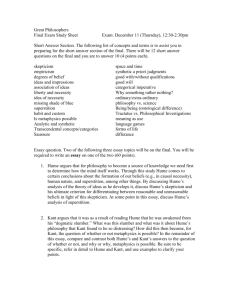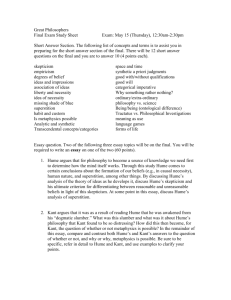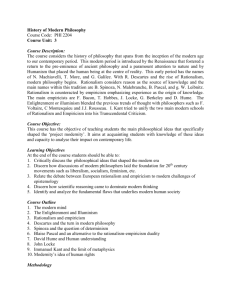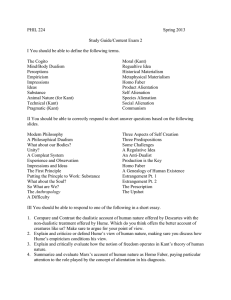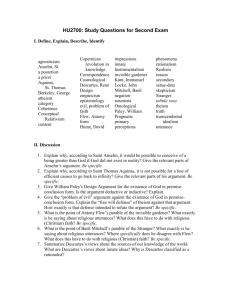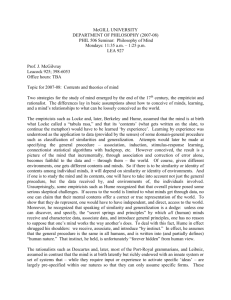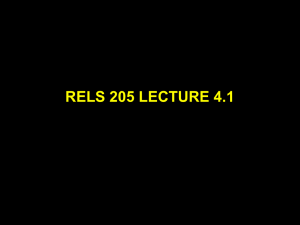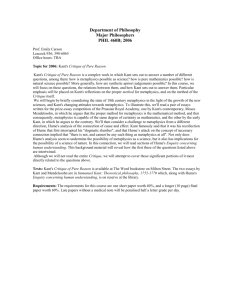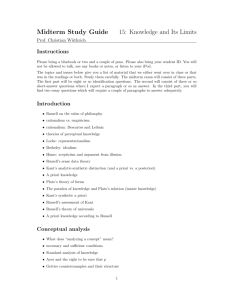Spring 2015 Foundations of Modern Philosophy Philo 215 Instructor
advertisement
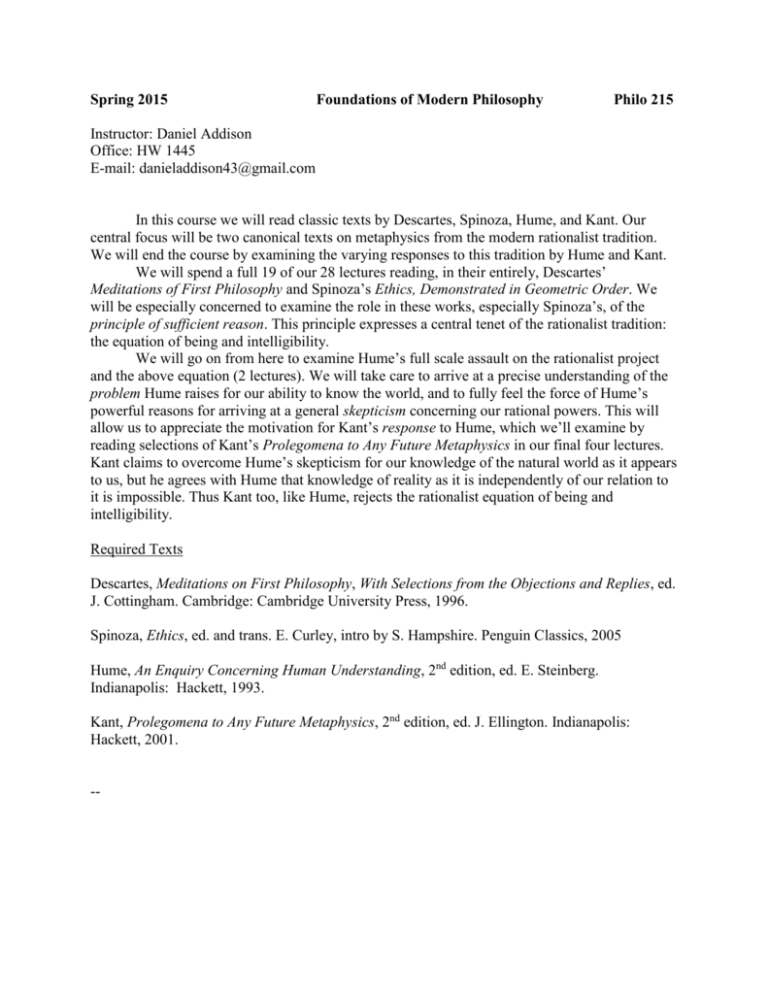
Spring 2015 Foundations of Modern Philosophy Philo 215 Instructor: Daniel Addison Office: HW 1445 E-mail: danieladdison43@gmail.com In this course we will read classic texts by Descartes, Spinoza, Hume, and Kant. Our central focus will be two canonical texts on metaphysics from the modern rationalist tradition. We will end the course by examining the varying responses to this tradition by Hume and Kant. We will spend a full 19 of our 28 lectures reading, in their entirely, Descartes’ Meditations of First Philosophy and Spinoza’s Ethics, Demonstrated in Geometric Order. We will be especially concerned to examine the role in these works, especially Spinoza’s, of the principle of sufficient reason. This principle expresses a central tenet of the rationalist tradition: the equation of being and intelligibility. We will go on from here to examine Hume’s full scale assault on the rationalist project and the above equation (2 lectures). We will take care to arrive at a precise understanding of the problem Hume raises for our ability to know the world, and to fully feel the force of Hume’s powerful reasons for arriving at a general skepticism concerning our rational powers. This will allow us to appreciate the motivation for Kant’s response to Hume, which we’ll examine by reading selections of Kant’s Prolegomena to Any Future Metaphysics in our final four lectures. Kant claims to overcome Hume’s skepticism for our knowledge of the natural world as it appears to us, but he agrees with Hume that knowledge of reality as it is independently of our relation to it is impossible. Thus Kant too, like Hume, rejects the rationalist equation of being and intelligibility. Required Texts Descartes, Meditations on First Philosophy, With Selections from the Objections and Replies, ed. J. Cottingham. Cambridge: Cambridge University Press, 1996. Spinoza, Ethics, ed. and trans. E. Curley, intro by S. Hampshire. Penguin Classics, 2005 Hume, An Enquiry Concerning Human Understanding, 2nd edition, ed. E. Steinberg. Indianapolis: Hackett, 1993. Kant, Prolegomena to Any Future Metaphysics, 2nd edition, ed. J. Ellington. Indianapolis: Hackett, 2001. --
